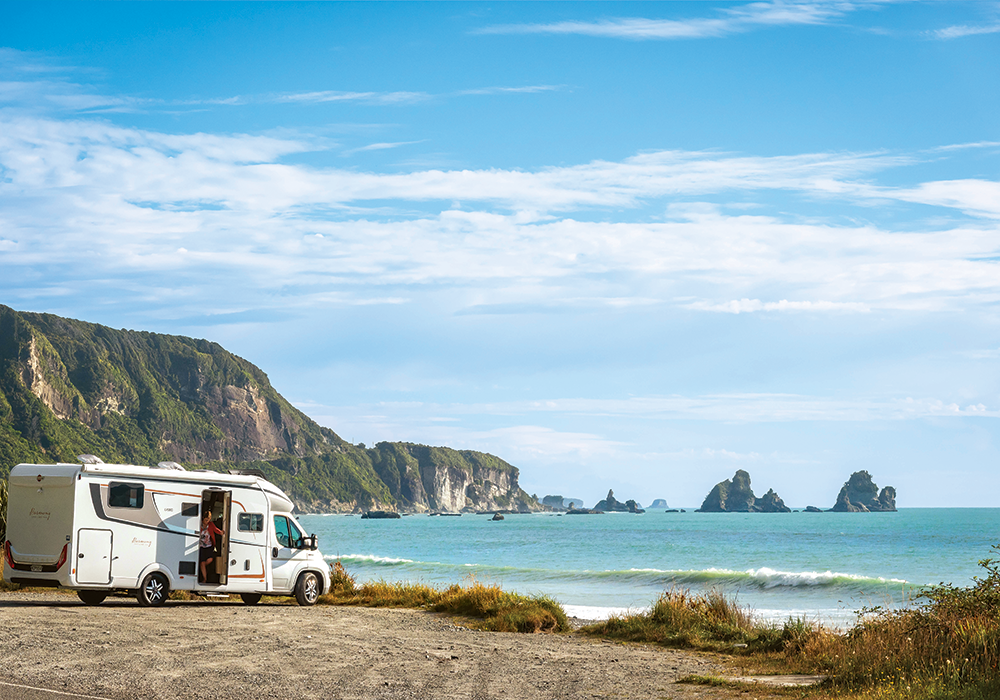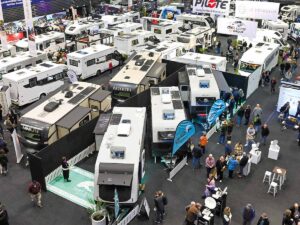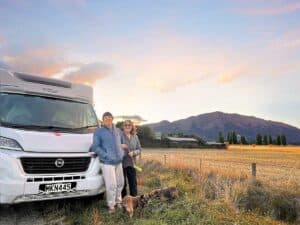Whether you did your OE in an old van and you’re upgrading, you’re buying for the first time, or you’ve decided it’s time to downsize, buying a motorhome is a big decision. Liz Dobson asked Mary Hamilton from Wilderness Motorhomes to show her the ropes.
Many Kiwis are becoming happy motorhomers, heading away for long weekends in their favourite spots, or touring for weeks or months. But unlike the days where you probably bought a van off some fellow Kiwi backpackers and you didn’t mind a little bit of discomfort, when it comes to motorhomes there are a lot of factors to consider.
Wilderness Motorhomes’ marketing director, Mary Hamilton, has been selling European-built vehicles with her brother, business founder John Managh, since 2005. She has helped thousands of people find their perfect motorhome, and has plenty of experience helping and advising Kiwis who want to become motorhome owners, but aren’t sure where to start.
“Motorhomes come in all shapes and sizes, so your first considerations should include the all-important trio of size, space and layout,” explains Mary. “You won’t know for sure what works for you until you try some different options; my advice for anyone looking to buy is to rent a few different types of motorhome first. This will help you in developing your own personal ‘must-have’ list.”
Buying new or secondhand
A motorhome can cost anything between $20,000 and $500,000. Mary suggests looking on Trade Me to see what your budget can buy you. “Perhaps you’re looking for something small and new for long-term use, or you may be after something a little larger and secondhand that has your desired specifications, even though it’s five to 10 years old,” says Mary. “Some people feel they would never sleep in a bed that someone else has slept in, so in that case you’d be looking at buying new.”
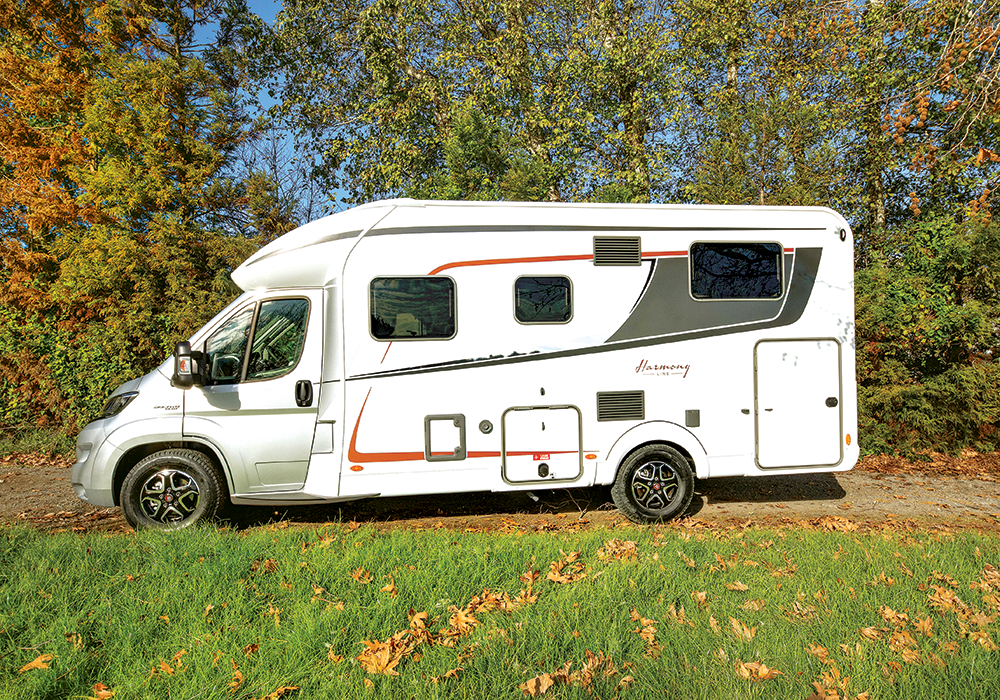
Rent before you own
Before laying down any deposit, you need to know what you actually want from your motorhome. Perhaps having a fixed bed is a must, or you’d like a separate shower and toilet. And if you’re new to motorhoming and you think you have to have a large kitchen, Mary says you might be surprised. A recent survey by Wilderness on what buyers consider a priority revealed that the bed is the primary concern. “Number one is the bed, two is the bathroom,” she says. “The number three priority is storage, and fourth is layout. A large kitchen was a long way down the list, as many motorhomers get used to cooking in a smaller space. They prefer to trade off a smaller kitchen for a fixed bed or bigger lounge.”
Another mistake many first-time motorhome buyers make is buying a vehicle to accommodate the grandchildren. “When this comes up, I ask customers, ‘Do you usually go on holiday with your grandkids?’”, says Mary. “If they say no, then I ask them how often they would take them on a motorhome trip.”
Whatever you decide has to work for you; just don’t rush into your purchase. Mary has had people come to them and buy a new motorhome without ever having stayed a night in a motorhome before. “It blows my mind,” she says. Renting one for at least a weekend, preferably a week, gives you the chance to experience what it is like to live off the grid, and what appliances you can use when not plugged into an electricity source. “It also gives people an understanding of what it’s like to live in a contained space. You have to understand it’s a trade-off, because it’s
a box on wheels, and the box is only a certain size,” explains Mary. “It’s best to decide whether the motorhome’s key features work for you before committing to a purchase. You don’t want to discover later that you can’t sleep well on the bed, or there isn’t enough storage for what’s important to you.”
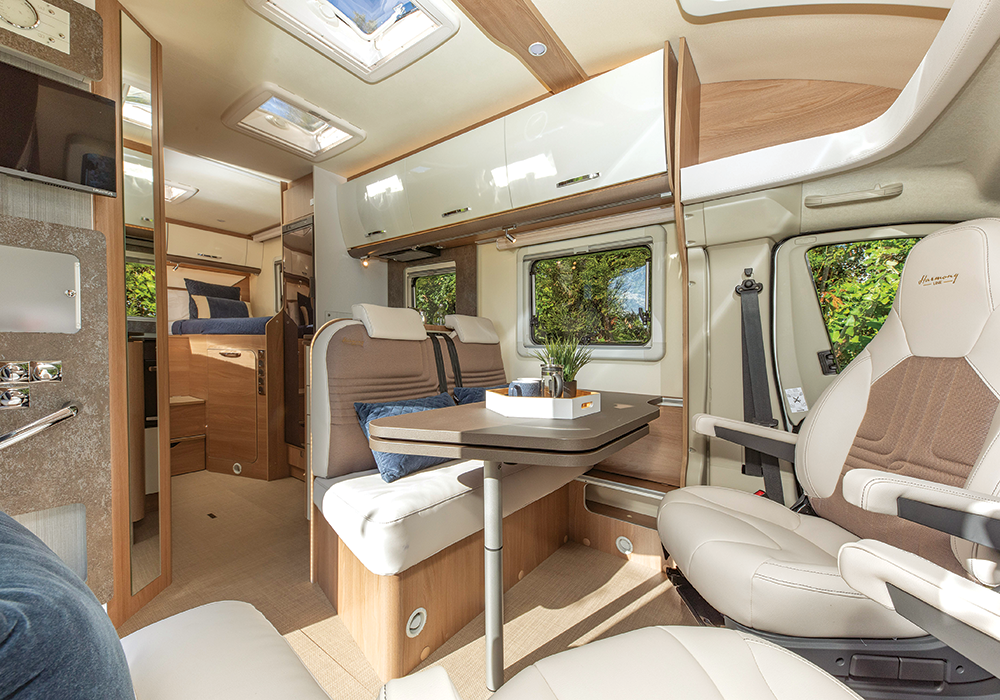
Don’t listen to friends
As soon as you tell friends who are motorhome owners that you’re going to buy one, they are likely to bombard you with advice. “Don’t buy a motorhome with an offside habitation door [that opens to the road]”; “You’ll regret not buying a motorhome with rear-wheel drive”; or “You must have storage capacity for 300 litres of fresh water,” are common. Don’t listen, says Mary.
“They may think their motorhome is perfect, but it’s perfect for their lifestyle. What is important to you, may not be the same for them.”
Cost of ownership
Outside of the obvious costs of motorhome ownership like insurance, you need to factor in a few extras. Compliance costs like registration will apply, whether it’s for a Certificate of Fitness (CoF) for a heavy motorhome, or a Warrant of Fitness (WoF) for a lighter one, plus Road User Charges for diesel vehicles.
Try to budget around $150 for a CoF, $70 for a WoF. A WoF is required for light vehicles, including motorhomes with a GVM (Gross Vehicle Mass) of 3,500kg or under. New motorhomes need an annual WoF inspection starting three years after first registration, or every six months if they were registered before January 1, 2000. A new CoF is required every six months. Add servicing, maintenance, fuel and depreciation to your budget.
Motorhomes need servicing after every 10,000kms or at least once a year, whichever comes first. An annual water tightness test is a requirement of the water ingress warranty for your new motorhome. If you can’t park it at home, you’ll need to include storage costs, which can be $250
a month at secure units. This may mean that renting a motorhome could be a more economic option for you.
Do your research
The history of motorhomes in New Zealand is limited, as they are relatively new here. Previously, Kiwis were mostly happy to camp or caravan.
Then came the conversion of Japanese imported buses into campervans. These days the choice of motorhomes is much wider, with a number of New Zealand-made campervans and motorhomes, as well as European units such as the ones Wilderness imports.
When you’re doing your research, an important factor to understand before you buy is payload. Motorhomes on CoF can hold more equipment than one on a WoF, but the more you add to the vehicle – such as golf clubs, mountain bikes, and even bottles of wine – the more this will affect the payload.
You can calculate a payload by taking the GVM and subtracting the Tare Weight, which is the weight of the vehicle without any load.

Changing motorhomes
While most owners will keep their vehicles for many years, others decide that they’d like something different. “Two common reasons we hear for people looking for a change are an uncomfortable bed, and insufficient payload,” says Mary. “Sometimes people aren’t able to drive a bigger motorhome so are looking to downsize, while for others, new features like thermo floors are a big attraction.” The reason for change might simply be for a change in layout (see Raymond and Margaret’s story, below).
Eco-friendly motorhomes
While pure electric motorhomes are still a way off, due to the infancy of batteries needed to power heavy vehicles for a decent range, do consider your carbon footprint. Diesel regulations in Europe mean vehicles such as the Fiat Ducato, built in Germany and imported by Wilderness, must meet low CO2 requirements. Fiat is also updating their safety features in the Ducato to include automatic emergency braking and lane departure warning, according to ANCAP (Australasian New Car Assessment Programme). Wilderness is the exclusive distributor of Carado, Bürstner and HYMER motorhomes in New Zealand. These world-leading brands are all from the Erwin Hymer Group.
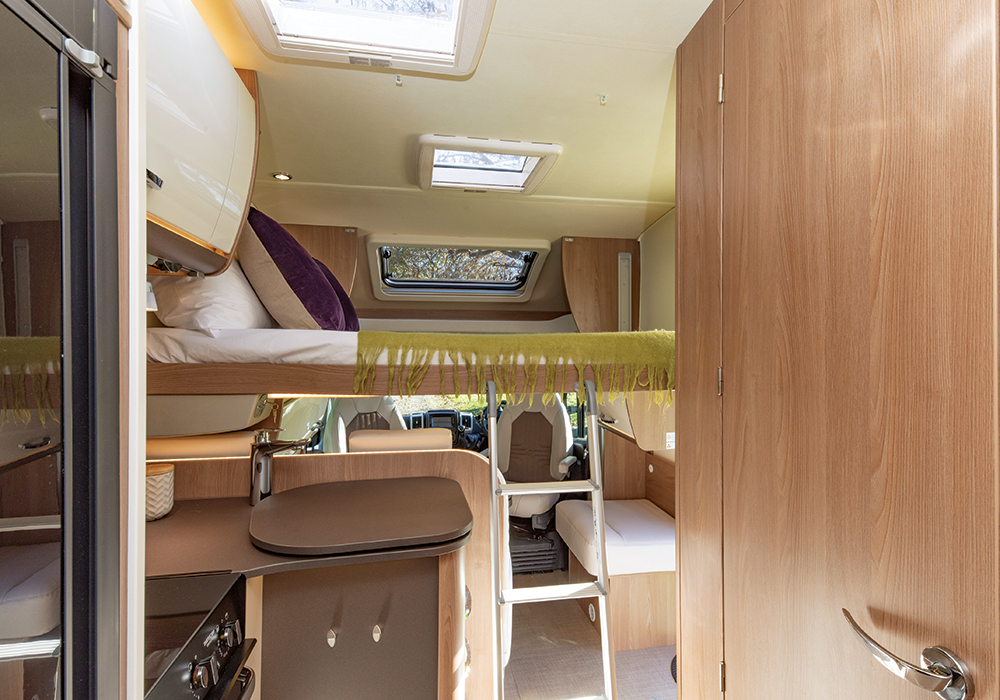
Customer satisfaction
For Raymond and Margaret MacKintosh, the most important factor when buying their new motorhome from Wilderness was layout.
They had previously purchased a Carado four-berther in 2017 from Wilderness that had twin beds-cum-king bed at the rear and a manual drop-down double bed at the front. But after touring the North Island in the Carado last year they decided they wanted a new layout, that included an L-shaped rear lounge and large panoramic windows.
In 2020, they sold their Carado via Wilderness, and ordered the Bürstner Lyseo TD744, a model that is the same size as their previous vehicle, with the handover taking place next month (February). It has two electric drop-down double beds in the front and rear that tuck away into the ceiling. “We want to park up and sit at the back and enjoy the view,” says Raymond.
Raymond said they had been to other motorhome dealerships, but the Wilderness staff were “understanding and patient”, with great communication.
“It’s not about the money for them, it’s about people’s feelings. We feel that the Wilderness team enjoys the chance to turn a big, important purchase like buying a motorhome, into something positive. Customer service is very important to us, and it was easy to ask the Wilderness staff any questions.
“We like the simplicity of the travel [in a motorhome]. We love being able to park at a beach or by a river and have everything we need there. We enjoy the freedom and the independence. Each day you have your home, your clothes, books and possessions. It’s just amazing.”
Raymond also shared his advice for first-time motorhome buyers. “Size is not everything! Weekend users have different needs to long-term users, but in general, less is definitely more in a motorhome. You have to make compromises, so build a profile of what you need, and find out what works for you.”
Need help buying your motorhome? Wilderness Motorhomes has a handy tools and guides series designed to help you navigate the buying journey. Visit motorhomesforsale.co.nz/tools-and-guides to learn more.
Looking for motorhomes or caravans for sale in NZ? Browse our latest listings here.

